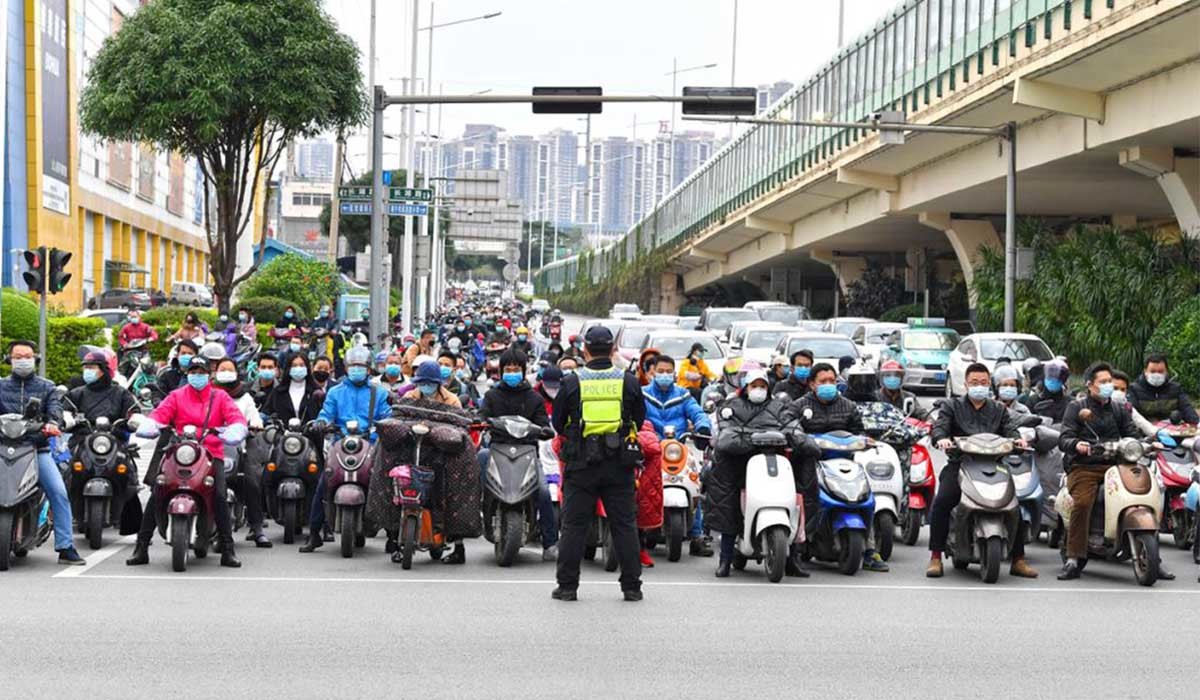National People's Congress representative Li Shufu's 2020 Two Sessions proposal - Appropriately relaxing the "ban on motorcycles", scientifically planning urban motorcycle travel
Published Time:
2021-09-19 16:47
Source:
On the eve of the National People's Congress and the Chinese People's Political Consultative Conference in 2020, Li Shufu, a deputy to the National People's Congress, proposed three suggestions: "Changing the vehicle purchase tax from a central tax to a tax shared by the central and local governments," "Postponing the collection of automobile consumption tax to the sales stage and achieving central-local sharing," and "Appropriately relaxing the restrictions on motorcycles and scientifically planning urban motorcycle travel." Motorcycle Three proposals were made.
The motorcycle industry is part of the transportation industry. The development of the motorcycle industry has made positive contributions to improving the lives of urban and rural residents, expanding exports of electromechanical products, and promoting national economic development. It has also accumulated valuable experience and technological innovation inspiration for the development of the automobile industry.
In 2019, China's motorcycle production and sales volume reached 17.37 million and 17.13 million units respectively, with 7.12 million units exported, generating more than US\$4 billion in foreign exchange earnings. 91 major motorcycle manufacturers achieved sales revenue of 102.8 billion RMB and total profits and taxes exceeding 5.3 billion RMB, with more than 800,000 related employees.
In 2007, at its peak, China's motorcycle production and sales volume exceeded 30 million units, accounting for 55% of the global total. However, due to the "banning and restricting motorcycles" policies in nearly 190 cities across the country, the market shrank, the momentum for enterprise transformation and upgrading was insufficient, technological progress stagnated, and competitiveness could not be continuously improved. Since 2007, China's motorcycle production and sales volume has declined annually at a rate of about 8%, and in 2016, the total production and sales volume was surpassed by India. In contrast, Honda Motorcycle's global sales from April 2018 to March 2019 exceeded 20 million units.
Currently, China is the only country in the world that implements "banning and restricting motorcycles". In European cities such as Paris, Milan, and Geneva, local governments have implemented specific measures to incorporate motorcycles into a diversified transportation system, improving traffic flow and advocating that driving one more motorcycle can reduce the need for one car, offsetting problems such as fuel consumption, road traffic efficiency, and parking space occupancy caused by using cars, and alleviating the pressure on people's travel. In Southeast Asia, motorcycle production and sales account for approximately 25% of the global total. In Vietnam, more than 20 million motorcycles travel on city and rural roads every day, and this number is still increasing by hundreds of thousands of units every year.

Many places in China have implemented a "banning instead of management" approach, which has greatly suppressed the technological progress, industrial upgrading, and structural optimization of the motorcycle industry, causing a huge impact on motorcycle exports and domestic sales. According to statistics from the Ministry of Public Security, the traffic accident rate of motorcycles is not higher than that of cars. In addition, the implementation of China's "Skynet" system in recent years will also significantly reduce the crime rate related to motorcycles.
Motorcycles have high通行效率, occupy less road resources, and a scientific study by the European Motorcycle Association shows that increasing motorcycles as a means of transportation by 10% will reduce urban traffic congestion by 40%. Appropriately relaxing the restrictions on motorcycles and scientifically managing urban motorcycle travel is necessary to drive the transformation and upgrading of the motorcycle industry and comprehensively enhance the international market competitiveness of Chinese motorcycle products. Therefore, the following suggestions are proposed:
1. Pilot the resumption of motorcycle registration and travel in some cities and formulate relevant traffic management regulations for motorcycles. When formulating traffic road management policies, formulate relevant traffic management regulations for motorcycles, give full play to the advantages of motorcycles, achieve diversified urban transportation, and improve通行效率. Adopt a quota registration method, plan and control the total number of legal two-wheeled vehicles on the road, ensure a reasonable and scientific proportion of four-wheeled and two-wheeled vehicles, and motor vehicles and non-motor vehicles, to maximize road utilization efficiency.
2. Revise the motorcycle driver's license examination levels and strengthen safety awareness training and management of commercial motorcycles. According to different motorcycle displacement levels, it is necessary to implement a motorcycle driver's license grading system. Issue special licenses for commercial motorcycles (express delivery, takeout), managed uniformly by the operating entity, which will undertake training and management responsibilities, separating the management of commercial motorcycles from personal motorcycles.
这里是标题一h1占位文字
Related News



